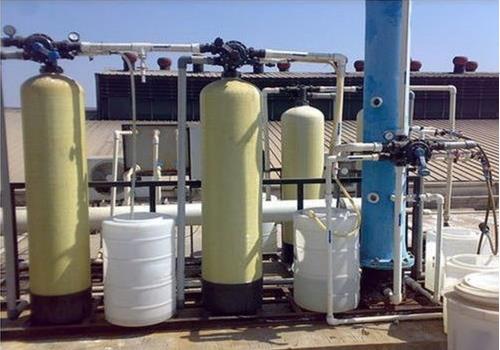Demineralization Plant
A DM plant is a system, which uses an ion exchange chemical process to remove dissolved ionic compounds (salts) from water. It is also known as Deionized Water System, Demineralizer, or DM Plant. A typical Demineralization Plant (DM Plant) consists of two vessels. The feed water or raw water is passed through the first vessel i.e. containing strong base cation resin in the form of Hydrogen (H+), whereupon all the positively charged ions (sodium, calcium, iron, copper, etc.
Types of DM Plant
- Two Bed Demineralizer
- Mixed Bed Demineralizer
- Portable water DM plant
- Packaged DM Water Plant
- Custom Built DM Plant
A demineralization plant is a facility that is used to remove dissolved minerals, such as calcium, magnesium, and iron, from water. This process is typically accomplished using ion exchange resins, which attract and trap the dissolved minerals, or through reverse osmosis, which removes dissolved particles by forcing water through a semi-permeable membrane. DM Plants are often used in industrial settings, such as power plants and chemical plants, to provide high-purity water for process use, and they are also used in some municipal water treatment plants to remove minerals that can cause issues such as hard water and pipe corrosion.
Advantages of DM Plants:
DM plants are essential facilities that remove dissolved minerals such as calcium, magnesium, and iron from water, ensuring high purity for various applications. Here are some key advantages:
High-Purity Water Supply: These plants provide water free from contaminants, critical for industries like power generation, pharmaceuticals, and chemicals, ensuring product quality and operational reliability.
Prevention of Scaling and Corrosion: By eliminating harmful minerals, demineralization prevents scaling in pipes and equipment, reducing maintenance costs and extending the lifespan of machinery.
Improved Process Efficiency: Purified water enhances chemical reactions, leading to consistent results and optimized production processes.
Regulatory Compliance: Demineralization helps businesses meet stringent water quality regulations, protecting public health and avoiding legal issues.
Versatility: Tailored for various applications, demineralization plants can serve both small municipal systems and large industrial facilities.
Reduced Environmental Impact: These plants minimize waste generation and chemical treatments, supporting sustainability efforts.
Cost-Effective Solution: While initial investments may be high, the long-term savings from reduced maintenance and improved efficiency make demineralization a financially sound choice.
In summary, DM plants are vital for producing high-quality water, enhancing efficiency, ensuring compliance, and promoting sustainability in numerous industries

